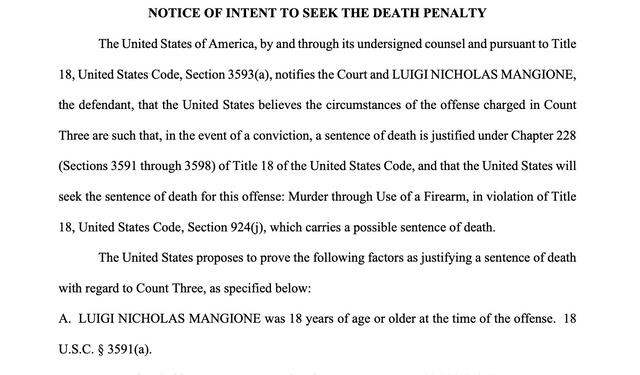Luigi Mangione case signals shift in U.S. death penalty politics
A high-profile murder, a bold political agenda, and a justice system under scrutiny Luigi Mangione’s case reignites the national debate over capital punishment.

Luigi Mangione, 26, appeared in federal court after being indicted for the murder of UnitedHealthcare’s former CEO, Brian Thompson. Federal prosecutors announced they would seek the death penalty. U.S. Attorney General Pam Bondi declared this decision was in line with President Trump’s agenda to restore capital punishment for severe crimes. Mangione pleaded not guilty to the charges.
What makes this case unique is Bondi’s early and public call for Mangione’s execution before his indictment. This is the first case under Trump’s executive order reinstating federal executions. It has drawn national attention not only for the crime but for the administration’s aggressive approach to capital punishment.
Defense challenges Bondi’s role, citing fair trial violations in Mangione death penalty case
Mangione’s attorneys argue that Bondi’s actions compromised his right to a fair trial. They claim her premature statements violated due process and may have influenced the grand jury. The defense filed a motion to bar further public comments from Bondi and requested she be restricted from influencing the trial process.
Legal experts, including the Death Penalty Information Center’s Robin Maher, criticized the politicized handling of the case. Maher noted that tying the death penalty to Trump’s agenda and announcing it before indictment appeared to serve political, not judicial, purposes. This adds to broader concerns about how capital punishment is applied.
Mangione case revives debate over politics, history, and future of the U.S. death penalty
The case reflects the fluctuating history of the death penalty in America. From its suspension by the Supreme Court in 1972 for being arbitrary and discriminatory, to its revival under Reagan and Clinton through federal laws targeting drug and violent crimes, federal policy has long been shaped by political ideology.

Federal prosecutors officially notify their intent to seek the death penalty against Luigi Nicholas Mangione, citing murder through use of a firearm under U.S. law. Photo: X
As the Mangione case unfolds, it spotlights the growing tension between justice and politics in capital punishment. While executions are on the rise, public support is waning. Whether this case sets a precedent or provokes reform remains to be seen, but it clearly marks a significant moment in the national debate on the death penalty.













